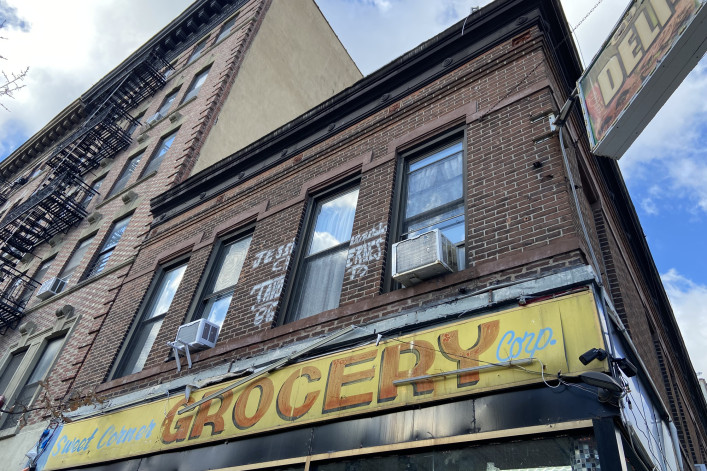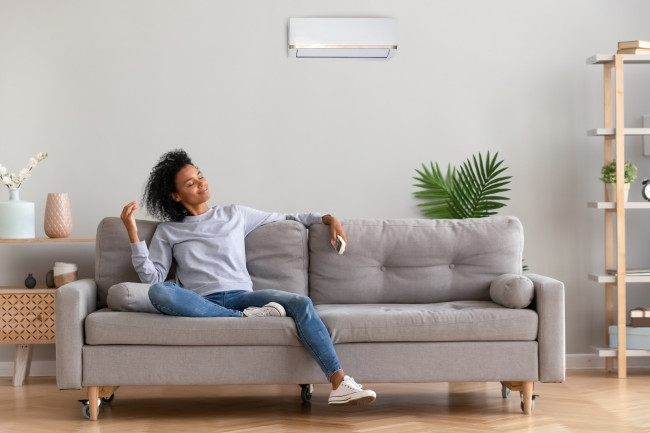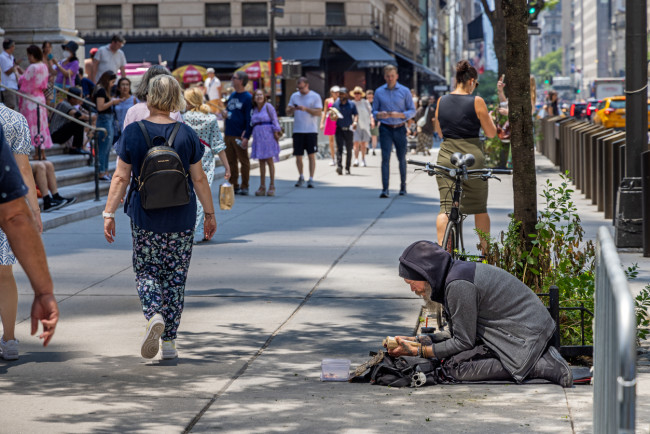Proposed NYC bill would require landlords to provide AC in the summer
- If passed, indoor temperatures must be kept below 78 degrees when it is 82+ degrees outside
- On average, 350 New Yorkers die each year due to heat or heat-related illnesses

More than 90 percent of NYC households already have AC, according to a city report.
iStock
The sweltering New York City summer heat often forces New Yorkers to flee to the apartments of friends with a coveted air conditioner. But a new bill introduced on Thursday would require landlords to provide AC to all of Gotham’s tenants.
The bill, introduced by Council Member Lincoln Restler, would require landlords to keep apartments at 78 degrees or lower when outdoor temperatures exceed 82 degrees in the summer months, from June 15th to Sept. 15th. Owners that don’t could face fines as high as $1,250 per day.
Restler’s legislation followed NYC’s third heat wave of 2024 last week, with temperatures in the mid-90s. Extreme heat can exacerbate health problems and even kill; roughly 350 people die each year in NYC of heat or heat-related illnesses, according to the city’s 2024 heat-related mortality report.
With climate change expected to increase the frequency of heat waves, Restler said the “common-sense legislation” was necessary to protect tenants from the summer heat.
“All tenants deserve a safe, liveable home and as our summers get hotter, that means guaranteeing access to air conditioning,” Restler said. “Heat is the leading killer from climate change and we must swiftly implement new, bold policy frameworks to keep New Yorkers safe.”
Even though landlords would be required to provide the cooling system, tenants would still be on the hook for paying the electricity bill, just as they are with heat in most cases.
Turning down the heat
Under the proposed bill, landlords would be required to install a “cooling and dehumidifying system” in the living room of every apartment to keep the entire unit cool and dry during the summer months (unless the building already has central cooling).
Building owners would also need to inspect these cooling systems at least 30 days before June 15th, when the cooling requirements kick in.
Landlords would have four years from the law’s passing to get their units up to snuff. Owners can apply an up to two-year extension if they would need to substantially renovate the building to comply with the law, or need extra time to update a landmarked building.
Even with the delay, Jay Martin, executive director of the building owner association the Community Housing Improvement Program, questioned how feasible it would be for landlords to follow the law, particularly when it comes to dehumidifying an apartment.
He also questioned how landlords would be able to control the AC units in each individual apartment to ensure that the units were cool enough, and added that the law could hike a tenant’s utility bill.
“For individual AC units, an owner can’t control those cooling mechanisms; the individual tenants do,” Martin said. “So it’s unclear how the owner could be held liable for the cooling levels of each individual unit.”
If a tenant already installed an AC unit that can meet the bill’s temperature thresholds, the landlord isn’t required to provide their own, according to the proposed legislation’s text. That may be true for a lot of tenants; more than 90 percent of NYC households already have AC, according to the city’s mortality report.
Landlords would also be required to notify tenants about the AC unit on their lease.
How to stay cool in the meantime
NYC’s cloying, summer heat is almost as iconic as the city itself: think the way Spike Lee portrays the boiling temperatures in “Do the Right Thing.” For New Yorkers dealing with the city’s sweltering temperatures there are a handful of ways to keep yourself and your apartment cool.
Low income New Yorkers can apply for a free AC unit through the state’s cooling assistance benefit program, though funds are available on a first-come, first-served basis. You can also boost your AC’s cooling effects using curtains and fans, purchase an AC unit (check out Brick Underground’s guide on that here), or even install central air in your brownstone—if you can afford the thousand-dollar price tag.
Or, you can head to a city cooling center—including many of the city’s public libraries—or cool down at a museum, coffee shop, or indoor mall.
Make sure you keep an eye out for the signs of heat stroke and heat exhaustion. And if you see a homeless person outside during a heatwave, you can also call 311 and request an outreach team from the NYC Department of Homeless Services who can help. (FYI: Be prepared to include details of the location and individual).
| Symptoms of heat stroke | Symptoms of heat exhaustion |
|---|---|
|
|
You Might Also Like






























